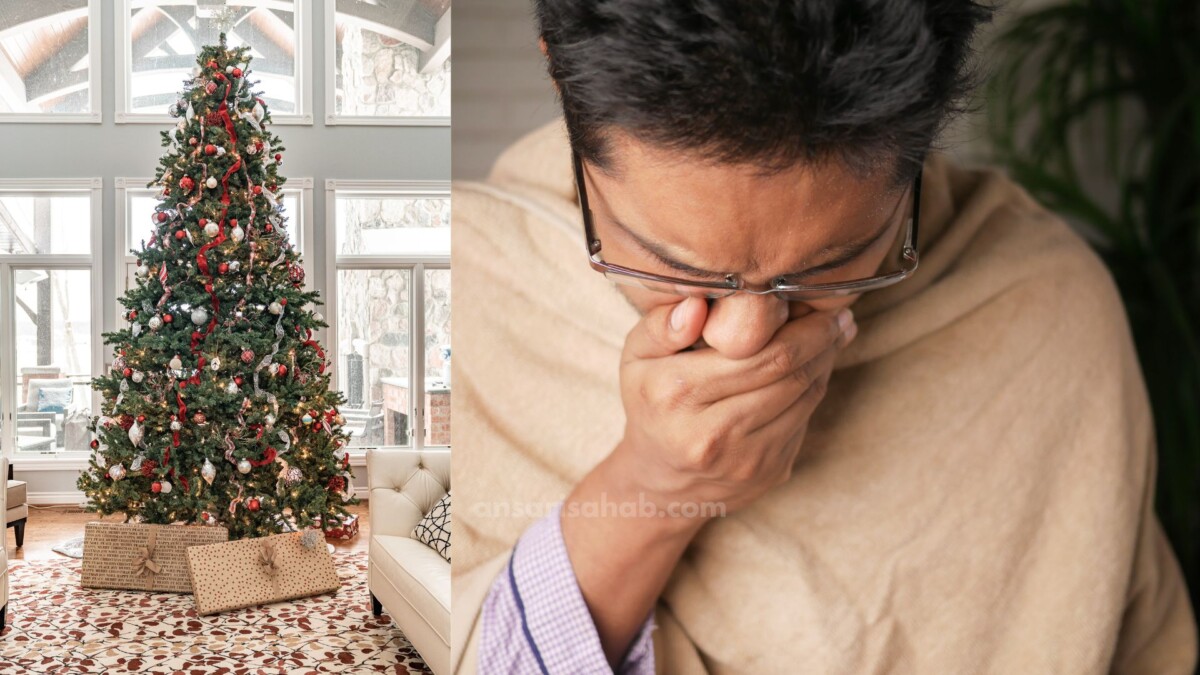The holiday season is synonymous with joy, family gatherings, and festive decorations. However, for some individuals, the cheerful ambiance may come with an unexpected companion – Christmas tree syndrome. This lesser-known allergic reaction can turn the season of merriment into a time of itchy eyes, runny noses, and sneezing. But fear not, as we delve into the details of Christmas tree syndrome, its causes, and effective precautions to ensure an allergy-friendly holiday celebration.
What is Christmas Tree Syndrome?
Christmas tree syndrome is a real and relatively common allergic reaction triggered by exposure to both real and artificial Christmas trees. The symptoms closely mirror those of traditional seasonal allergies, encompassing runny nose, sneezing, itchy eyes, congestion, coughing, and, in severe cases, wheezing. Remarkably, these symptoms can persist for several weeks, even after the tree has been removed from the home.
Causes of Christmas Tree Syndrome:
Several culprits contribute to the onset of Christmas tree syndrome:
- Mold: Real Christmas trees, particularly those stored or transported in less-than-ideal conditions, can harbor mold spores that become airborne when the tree is brought indoors, provoking allergic reactions.
- Pollen: Even artificial trees can be problematic for those allergic to tree pollen, as they accumulate dust and pollen during storage, releasing them into the air when brought out for decoration.
- Terpenes: Both real and artificial trees emit terpenes, natural oils responsible for the characteristic scent of Christmas trees. While pleasant for most, these can act as irritants for individuals with allergies or asthma.
- Dust Mites: The warm and humid environment around a Christmas tree can become a breeding ground for dust mites, a common allergy trigger.
Preventing Christmas Tree Syndrome:
Here are some effective tips to prevent Christmas tree syndrome and ensure an allergy-friendly holiday season:
- Choose your tree wisely: Opt for a freshly cut real tree and inspect it for signs of mold or mildew. Give it a good shake before bringing it indoors.
- Wash your artificial tree: Clean your artificial tree with a mild detergent and water solution before decorating to remove accumulated dust, pollen, and other allergens.
- Strategic tree placement: Avoid placing the tree near vents or heat sources, as this can exacerbate allergy symptoms. Also, refrain from placing it in bedrooms or areas where you spend a significant amount of time.
- Regular vacuuming: Frequent vacuuming, especially around and under the tree, can help eliminate dust, pollen, and mold spores.
- Consider an air purifier: Use an air purifier with a HEPA filter to remove allergens from the air and create a more breathable environment.
- Take allergy medication: Consult with your doctor and consider taking over-the-counter or prescription allergy medication before bringing a tree into your home if you are prone to allergies.
Beyond Trees: Other Holiday Allergens:
While Christmas trees are primary culprits, other holiday decorations and traditions can also trigger allergies. Be mindful of the following:
- Festive foliage: Poinsettias, holly, and other holiday plants can harbor mold and pollen. Opt for artificial versions or place them away from high-traffic areas if you have allergies.
- Dust-collecting decorations: Minimize clutter in your home, as stuffed animals, figurines, and other decorations can trap dust and pollen, worsening allergy symptoms.
- Fragrant candles and potpourri: Artificial fragrances in candles and potpourri can irritate sensitive airways. Choose natural air fresheners or skip them altogether.
Conclusion:
Christmas tree syndrome may pose a challenge, but with a thorough understanding of its triggers and the implementation of simple precautions, you can enjoy a sneeze-free and allergy-friendly holiday season. Whether choosing a real or artificial tree, strategic placement, regular cleaning, and the use of air purifiers can significantly contribute to a healthier and happier celebration. Spread the awareness, share these tips with friends and family, and ensure everyone breathes easier this Christmas. Wishing you a joyous and allergy-free holiday season!









